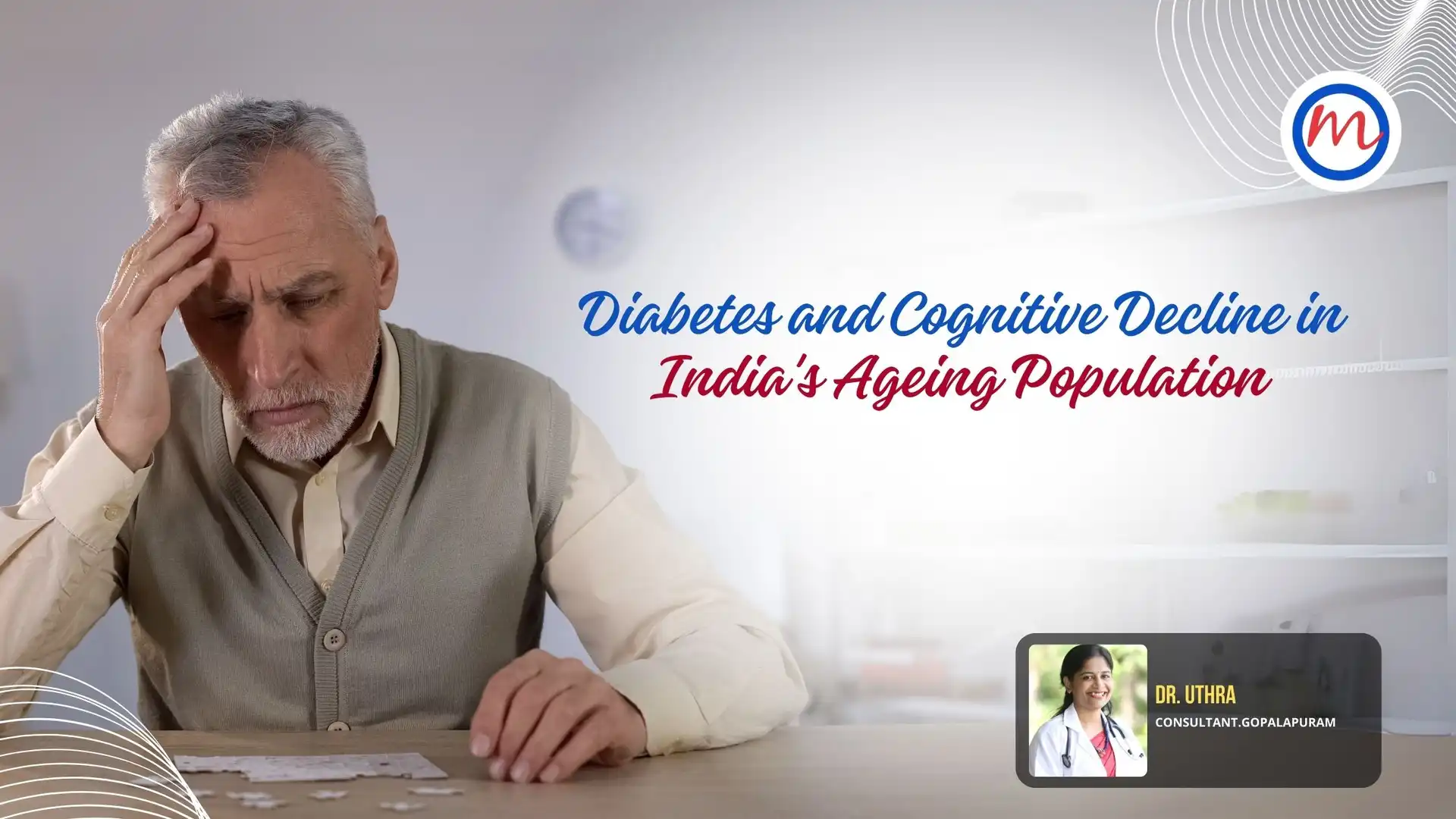Diabetes and Cognitive Decline in India’s Ageing Population
India is now the most populous nation globally, and its rapidly aging population presents unique health challenges. By 2050, 19% of India’s population will be aged 60 and above, leading to a significant rise in health concerns like dementia and diabetes. The increasing prevalence of these conditions has sparked concern among doctors.
The Link Between Diabetes and Dementia
Diabetes, hypertension, and obesity are prevalent in India, contributing to a high vascular burden that elevates the risk of cognitive decline. The ICMR-INDIAB study suggests that the number of older adults living with diabetes in India may increase in the coming decades. Meanwhile, the World Health Organization (WHO) estimates that global dementia cases will reach 82 million by 2030 and 152 million by 2050, with India being a significant contributor.
Understanding Cognitive Decline
Cognitive ability refers to a person’s capacity to think, remember, and process information. While a gradual decline is typical with age, severe impairment can disrupt independence and quality of life. Cognitive decline generally progresses through four stages:
- No cognitive impairment
- Subjective cognitive impairment (SCI)
- Mild cognitive impairment (MCI)
- Dementia
Subjective Cognitive Impairment (SCI): Often overlooked, SCI can last up to 10–15 years before progressing to dementia. Individuals may struggle to learn new skills, and without proper monitoring, this stage can go unnoticed.
Mild Cognitive Impairment (MCI): This stage affects memory, language, and decision-making abilities. In some cases, it can lead to dementia within a year.
Dementia: The most severe stage, where daily activities become challenging, impacting the individual’s overall quality of life.
The Diabetes-Cognition Connection
Studies show a 60% increase in the risk of dementia among individuals with diabetes. High blood sugar levels are linked to increased beta-amyloid protein in the brain, a key marker of Alzheimer’s disease. Research has revealed that even people with diabetes for less than 10 years show memory deficits associated with hippocampal shrinkage, closely tied to HbA1C levels.
Preventing Cognitive Decline in Patients with Diabetes
Currently, there is no cure for dementia, making prevention essential. Early detection of cognitive decline in high-risk individuals with diabetes or hypertension is crucial. Integrating cognitive assessments into diabetes care plans can help detect early changes and facilitate timely interventions.
The Way Forward
To combat the growing burden of diabetes and dementia, India must emphasize prevention, early detection, and effective management. Public health policies should prioritize awareness campaigns, routine cognitive screenings, and lifestyle modifications to mitigate the risks associated with diabetes-related cognitive decline.
If you or a loved one is managing diabetes, consider consulting healthcare professionals for regular cognitive assessments. Early intervention can make a significant difference in maintaining cognitive health and quality of life.
Dr. Uthra,Consultant
Dr. Mohan’s Diabetes Specialities Centre
Gopalapuram, Chennai



